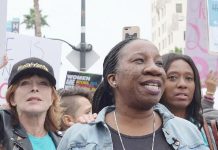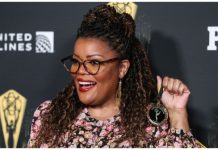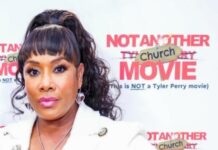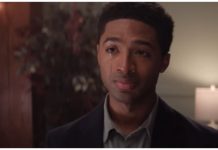[videowaywire video_id=”J8PSL601G0K683R3″]
*Not a dry eye was in the room as the film “Tell Them We Are Rising: The Story Of Black Colleges and Universities” came to an end.
An overflow of emotions could be felt in the packed auditorium of the Beaudry Theater in the LA Center Studios as some laughed, cried, cheered while witnessing the journey African Americans took as they overcame adversity while fighting for equal education.
Award-winning director Stanley Nelson who produced the film led a panel discussion with a few special guests including Dr. Michael Lomax – CEO, United Negro College Fund, Dr. Mary Schmidt Campbell President- Spelman College, Producer, Will Packer – Will Packer Productions (Girls Trip) and Dr. Melina Abdullah – Professor/Chair, Pan-African Studies, CSULA.
ALSO RECOMMENDED: UNIVERSITY OF ALABAMA EXPELS RACIST STUDENT AFTER HER ‘N-WORD’ VIDEO RANT GOES VIRAL [WATCH]
At one point in this country’s history, blacks were not even allowed to be taught how to read and write & were prohibited from going to school. In “Tell Them We Are Rising,” Filmmaker Stanley Nelson captured the true essence of what it meant to fight for equality. Nelson used over 150 years of history to tell the story of African Americans in the United States but really American History.
“There are over 100 HBCU’s that still exist,” said Nelson. “We knew early on we couldn’t tell the story of every HBCU, we just had to bite the bullet. You know what films do best … tell stories and we wanted viewers to have a feeling of what HBCUs have meant when you leave the theater.”
Through factual and visual evidence, Nelson carefully crafted the stories of men who helped pave the way for blacks to have equal education in America.
“I wanted to make sure I told the story of Henry Dubois and Booker T, I think that’s really important,” said Nelson.
During the Q&A, panelists answered an array of questions and even offered their own personal insight on the film and their takeaways. For panelist Dr. Melina Abdullah, a third generation HBCU student, not only did this film ignite her already strong convictions of the importance of HBCU’s but informed us the critical role HBCU’s played in shaping American History.
“These spaces we have at HBCU’s is not just about what we learn in the classroom but I think what the film encapsulates is also the sense of autonomous community that is there,” said Abdullah. “This idea that we have sisters and brothers we can build together with.”
For filmmaker Stanley Nelson, there are three things he wants viewers to use to give keep HBCU’s narrative alive; our voice, our bodies, and our resources. By tuning into this film and spreading the word, you’re quietly become a part of that narrative.
We Publish News 24/7. Don’t Miss A Story. Click HERE to SUBSCRIBE to Our Newsletter Now!








